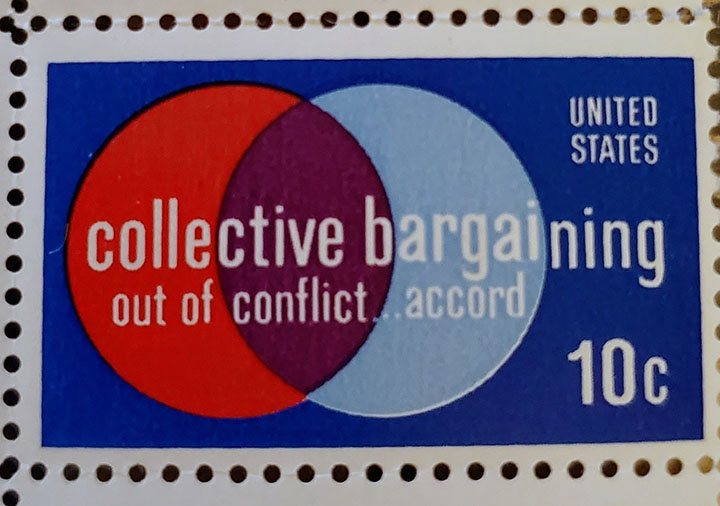Select any filter and click on Apply to see results
Article 35: Adverse Actions
Section 1
For purposes of this Article, adverse actions are suspensions for more than fourteen (14) calendar days, removals (except for actions taken under Article 36 (Unacceptable Performance)), reductions in grade or pay (except for actions taken under Article 36 (Unacceptable Performance)), or furloughs of thirty (30) calendar days or fewer. The provisions of this Article do not apply to the removal of probationary or term employees. The Employer will take an adverse action for such cause as will promote the efficiency of the service.
Section 2
The Employer and the Union agree to the concept of progressive discipline. Every situation warranting discipline is different and in some instances, progressive discipline may not be appropriate. In deciding what action may be appropriate, the Employer will give due consideration to the relevance of any mitigating and/or aggravating circumstances, including those listed below. All of these factors may not be relevant in a particular case, and each case must be considered individually. Selection of the appropriate penalty requires a responsible balancing of the factors relevant to the particular case.
1. The nature and seriousness of the offense, and its relation to the employee's duties, position, and responsibilities, including whether the offense was intentional or technical and inadvertent, or was committed maliciously or for gain, or was frequently repeated;
2. The employee's job level and type of employment including fiduciary role, contacts with the public, and prominence of the position;
3. The employee's past disciplinary record;
4. The employee's past work record, including length of service, performance on the job, ability to get along with fellow workers, and dependability;
5. The effect of the offense upon the employee's ability to perform at a satisfactory level and its effect upon the Employer's confidence in the employee's ability to perform assigned duties;
6. Consistency of the penalty with those imposed upon other employees for the same or similar offenses;
7. The notoriety of the offense or its impact upon the reputation of the Employer;
8. The clarity with which the employee was on notice of any rules that were violated in committing the offense, or had been warned about the conduct in question;
9. Potential for the employee's rehabilitation;
10. Mitigating circumstances surrounding the offense such as unusual job tensions, personality problems, mental impairment, harassment or bad faith, malice or provocation on the part of the others involved in the matter; and
11. The adequacy and effectiveness of alternative sanctions to deter such conduct in the future by the employee or others.
Section 3
The Employer will follow these procedures when proposing and deciding to take adverse actions against an employee under this Article:
1. Give the employee at least thirty (30) calendar day advance written notice stating the specific reasons for the proposed adverse action. In cases where an adverse action is proposed for reasons of off-duty misconduct, the Employer's written notification also will contain a statement of the nexus between the off-duty misconduct and the efficiency of the service.
2. Provide the employee with a copy of any information relied upon to support the proposed adverse action.
3. Grant the employee a reasonable amount of duty time, normally no more than eight (8) hours, to prepare their response to the proposed adverse action. The Employer may consider a written request from the employee for additional duty time to prepare their response.
4. Give the employee the opportunity to reply to the notice orally and/or in writing within ten calendar days from the date the employee receives notice of the proposed adverse action. The Employer may consider a written request from the employee to extend the reply period unless the proposed action is being taken under the 'crime provision' (5 CFR §752.404), in which case a request for an extension of the reply period will not be considered.
5. If the employee elects to make an oral reply, the Deciding Official or their designee, will prepare a summary of the oral reply for the record. The Employer will provide a copy of this summary to the employee and the employee's representative and allow at least one day for comment and/or correction.
6. Consider the employee's reply.
7. Give the employee a written decision letter concerning the proposed adverse action. Normally, the decision will be made by a management official of a higher level than the official who issued the notice of the proposed adverse action. The decision letter will be issued prior to the effective date of the adverse action, and will contain the Employer's findings with respect to each specification made against the employee in the notice of proposed action. The Employer also will include a statement in the decision letter advising the employee of his/her or the Union's rights to challenge the adverse action.
Section 4
Upon request, an employee is entitled to representation at any examination by a representative of the Employer in connection with an investigation if the employee reasonably believes that the examination may result in disciplinary action against the employee.
Section 5
An employee against whom an adverse action has been taken may challenge that action in accordance with Article 32 (Grievance Procedure) of this Agreement. The grievance procedure may be bypassed and the Union may elect to proceed directly to arbitration in accordance with Article 33. This would not preclude the employee's option to appeal the adverse action directly to the Merit Systems Protection Board if arbitration is not invoked.
Section 6
If an adverse action is canceled, all documentation relative to that action (or proposed action) in the employee's Official Personnel File will be destroyed, with confirmation of destruction sent to the employee. The Employer will not destroy any documentation required to be preserved under laws, rules, or regulations.

